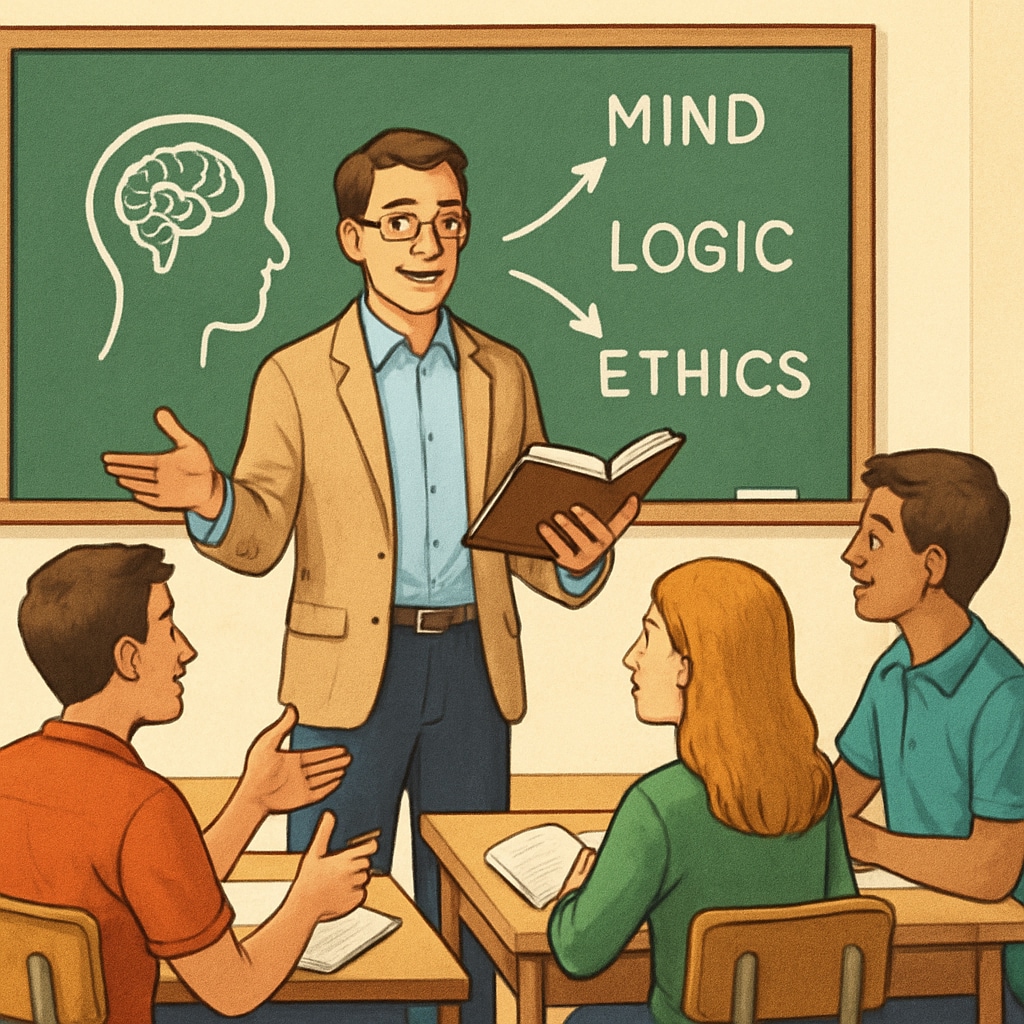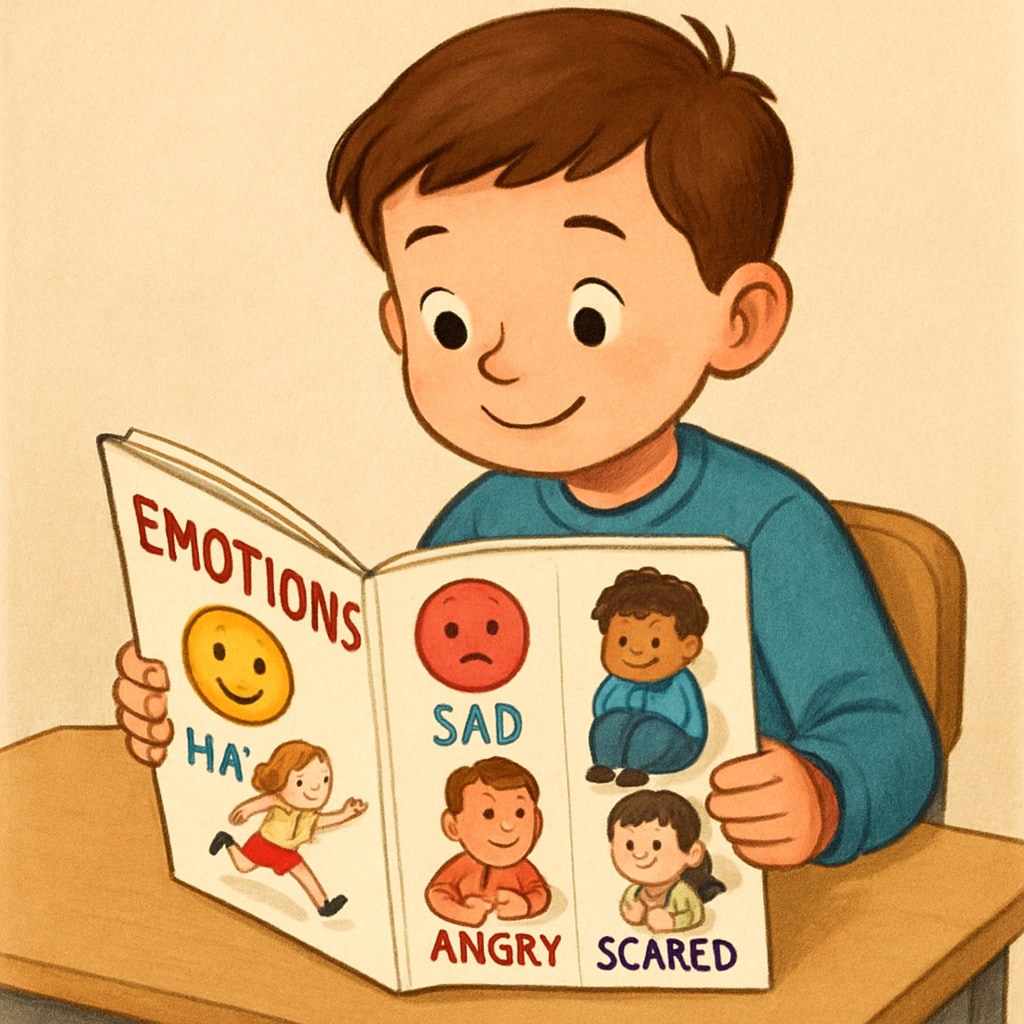Psychology and philosophy, even as subjects for amateur learning, can provide valuable insights into self-awareness and critical thinking. When integrated into K12 education, these fields can help students develop a deeper understanding of themselves and the world around them. By introducing age-appropriate resources and engaging teaching strategies, educators and parents can make these disciplines accessible and enriching for young minds.
Why Introduce Psychology and Philosophy in K12 Education?
Psychology, the study of human behavior and mental processes, and philosophy, the exploration of fundamental questions about existence and knowledge, are often seen as advanced subjects. However, their core principles can be broken down into simpler, relatable ideas for children and teenagers. For example, psychology can teach students about emotions, decision-making, and social interactions, while philosophy can encourage them to ask questions, evaluate ideas, and understand ethics.
Incorporating these subjects at an early stage can:
- Promote critical thinking and problem-solving skills.
- Enhance emotional intelligence and empathy.
- Encourage curiosity and a lifelong love of learning.

Accessible Resources for Beginners
Finding beginner-friendly resources is crucial for introducing psychology and philosophy to young learners. Below are some suggestions tailored for K12 students:
- Books: “Sophie’s World” by Jostein Gaarder offers an engaging introduction to philosophy, while “Emotions Explained with Buff Dudes” by Shen T provides a humorous take on emotional psychology.
- Podcasts: Shows like BBC’s The Philosophy Files or Speaking of Psychology by the American Psychological Association are great for teens.
- Interactive Tools: Apps like “Mood Meter” can help children track and understand their emotions, while “The School of Life” offers videos on philosophical topics tailored for younger audiences.
These resources are designed to be engaging and easy to understand, helping students connect abstract concepts to their daily lives.

Teaching Strategies for Engaging Young Minds
Introducing psychology and philosophy in K12 education requires creative teaching methods. Here are some strategies that work well:
- Storytelling: Use narratives to explain complex ideas. For instance, teaching moral philosophy through fables or discussing psychological behavior through relatable characters.
- Interactive Discussions: Create a “question of the day” to encourage students to think critically and share their perspectives.
- Role-playing: Simulate scenarios where students can explore philosophical dilemmas or psychological concepts like teamwork and conflict resolution.
These methods make learning interactive, ensuring that students remain engaged and curious throughout the process.
Challenges and How to Overcome Them
While introducing psychology and philosophy can be rewarding, it also comes with challenges. Concepts in these fields can sometimes feel abstract or unrelated to practical life. To overcome this, educators should:
- Relate lessons to real-life experiences, such as discussing choices during group projects or analyzing emotions in popular media.
- Break down concepts into smaller, digestible parts, ensuring students understand the basics before moving to complex ideas.
- Encourage questions and foster a classroom environment where curiosity is celebrated.
By addressing these challenges, educators can create a supportive space for exploration and growth.
Conclusion: A Lifelong Journey
Introducing psychology and philosophy into K12 education is not about creating experts in these fields but about equipping students with tools to navigate life’s complexities. By using beginner-friendly resources and engaging teaching strategies, educators can inspire curiosity and critical thinking, laying the foundation for a lifelong journey of learning and self-discovery.
As these young learners grow, their understanding of psychology and philosophy will deepen, helping them become thoughtful, empathetic, and self-aware individuals. The journey starts with the first step, and the earlier we begin, the more profound the impact.
Readability guidance: This article uses short paragraphs and lists to maintain clarity. Concepts are explained with examples to ensure accessibility for a broad audience, and transition words are integrated for smooth flow.


